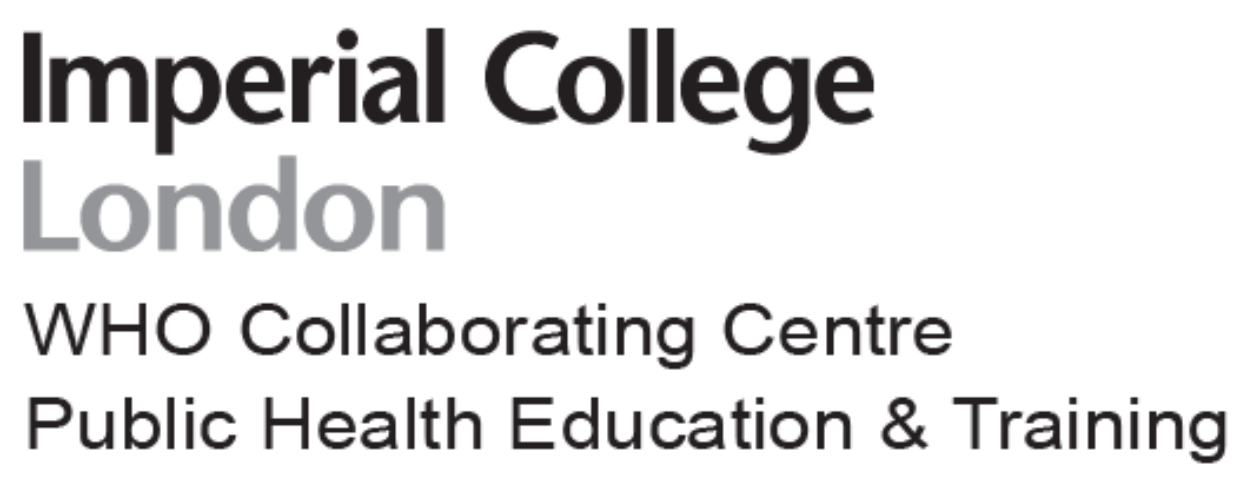Advancing Health Sustainability
– Insights from Two Conference Talks –
As a centre of excellence in public health research and consultancy, the WHO Collaborating Centre for Public Health Education and Training (WHOCC) supports the World Health Organization (WHO) and member states in tackling the critical aspects of health sustainability. As part of this, our director, Professor Salman Rawaf, has been invited to many prestigious international conferences to deliver keynote speeches and conference talks.

Celine Tabche, Teaching Fellow at the WHOCC, had the honour of delivering a keynote speech and a conference talk on behalf of Prof Salman, over the Christmas break. Read about her key insights and their implications for shaping a sustainable and equitable healthcare landscape….
“In the first keynote talk at the University of Al-Zahraa, I explored the intricate relationship between science, technology, and people in health sustainability, focusing on policymakers’ challenges and opportunities. The second talk, presented at The Twenty-Second Arab Conference on Modern Methods in Hospital Management, delved into the effective management of beneficiary health for successful health insurance outcomes.”

This keynote address centred on “Science, technology, and people in health sustainability: challenges to policymakers.” By emphasising the transformative power of science and technology in healthcare, the talk underscored the need for a balanced approach to value-based care, considering cost and efficiency. What is more, how humans behave and what consequences our behaviour has – the human element – pulls and pushes the drivers and resistors to transformative change. The overarching message is that the pull of sustainability and equity can push the human element to drive forward advancements in science and technology and revolutionise healthcare systems.
Challenges and Opportunities:
Policymakers find themselves at the intersection of challenges and opportunities presented by these advancements. Coupled with this is the delicate task of balancing cost-effectiveness with efficient healthcare delivery; this requires strategic decision-making. This is why, the talk highlighted the importance of fostering collaboration, encouraging innovation, and prioritising ethical considerations in policymaking.
- Collaboration:
To harness the full potential of science and technology, collaboration among healthcare professionals, researchers, and policymakers is essential. Through breaking down silos and promoting interdisciplinary collaboration, we can create synergies that lead to innovative solutions.
- Innovation:
Policymakers must actively support and incentivise innovation in healthcare. From adopting cutting-edge medical technologies to implementing data-driven decision-making processes, embracing innovation is key to sustainable healthcare.
- Ethical Considerations:
As we advance in science and technology, ethical considerations become paramount. For this reason, policymakers must ensure that healthcare advancements are ethically sound, by placing the well-being of individuals and communities at the forefront.
The Path Forward:
The keynote concluded with a call to action for policymakers to navigate these challenges by prioritising collaboration, encouraging innovation, and upholding ethical standards. By doing so, we can unlock the full potential of science and technology to create a more sustainable and equitable health system that benefits all populations.

In this second talk, the focus shifted to exploring strategies to achieve health insurance success through effective management of beneficiary health. Grounded in data from the global disease burden in the Eastern Mediterranean Region (EMR), the talk outlined key initiatives for advancing Beneficiary Health Management (BHM).
Strategies for Success:
- Strengthening Healthcare Providers:
The foundation of successful BHM lies in the capacity of healthcare providers. Investing in training programmes to enhance their skills and knowledge ensures a higher quality of healthcare services.
- Promoting Healthy Behavioural Change:
BHM success requires a proactive approach to promoting healthy behaviours among beneficiaries. Implementing training programmes that educate individuals about healthy lifestyle choices is essential.
- Evidence-Based BHM Programmes:
BHM programmes must be rooted in evidence to ensure effectiveness. Policymakers should prioritise developing and implementing evidence-based initiatives to improve health outcomes.
- Utilising Technology:
Embracing technology, including mobile apps and trackers, can significantly enhance the delivery of BHM services. These tools empower individuals to manage their health and provide valuable data for policymakers actively.
- Involving the Private Sector:
Collaboration with the private sector can expand the reach and impact of BHM services. Incentivising private sector involvement creates a more comprehensive and dynamic healthcare ecosystem.
- Data-driven Monitoring and Evaluation:
Regular data collection and analysis are vital for monitoring and evaluating the success of BHM programmes. Policymakers should establish robust systems for data collection to inform decision-making.
Monthly Progress:
Implementing these strategies requires a consistent and concerted effort. Along with that, monthly monitoring and evaluating progress to ensure effective interventions will allow for timely adjustments and improvements.
- Celine’s final thoughts on her experience of speaking at the two conferences -
“The two talks underscored the complexity and interconnectedness of factors influencing health sustainability and successful health insurance outcomes. Firstly, policymakers can pave the way for a more sustainable and equitable healthcare future by navigating challenges with strategic collaboration, innovation, and ethical considerations. Also, embracing evidence-based strategies and leveraging technology can further enhance the effectiveness of BHM, ensuring that individuals receive high-quality, comprehensive healthcare services.”

